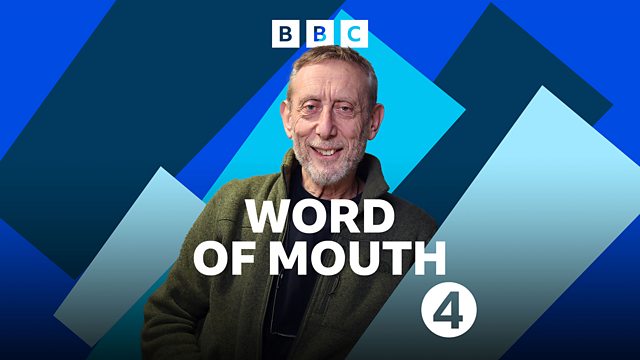Teens and TV
Michael Rosen discusses writing for teenage characters on TV, with Phil Redmond, E20's Jeff Povey, Arinze Kene and Emer Kenny, and Laura Hunter from Skins.
Michael Rosen explores the portrayal of teens on TV, and speaks to Phil Redmond, creator of Grange Hill about how approaches have changed over the years, and the battle Grange Hill faced to stay on the air.
He visits Albert Square and speaks to writer/cast-members of E20, Emer Kenny and Arinze Kene. Together with senior writer Jeff Povey they discuss how they developed the character of Fatboy to parody people who over-use slang, and Emer talks collecting words on buses.
What programme about young people and TV would be complete without mention of Skins? Writer Laura Hunter and cast talk about how they coined the phrase "Amazeballs."
We also hear from Paul Parry, the self-styled "literally tsar" about the way the use of the word has changed. Why is it, like, literally everywhere?
Producer: Toby Field.
Last on
More episodes
Previous
Next
Music and featured items
-
![]()
Rizzle Kicks
When I Was a Youngster
-
Paul Parry the self-styled 'Literally Tsar'
The Literally Tsar- Paul Parry, literally talking about the word literally...
Duration: 06:27
Broadcasts
- Tue 24 Jan 2012 16:00���˿��� Radio 4
- Mon 30 Jan 2012 23:00���˿��� Radio 4
From blunk to brickfielder: our wonderful words for weather
Digital body language – how to communicate better online
Coinages that changed the world – and some that tried to...
Ittibitium, borborygmus, and Ba humbugi – 14 wonderful science words you’ve never heard of
Download this programme
Subscribe to this programme or download individual episodes.
Keywords for Our Time
Series of programmes examining key phrases in public debate.
Smiley face: Seven things you didn't know about emoji
Some facts about emoji - possibly the world's first truly global form of communication.
The funny words that kids invent
Have a look at some of the fantastic words that children invent and reimagine.
Podcast
-
![]()
Word of Mouth
Series exploring the world of words and the ways in which we use them







